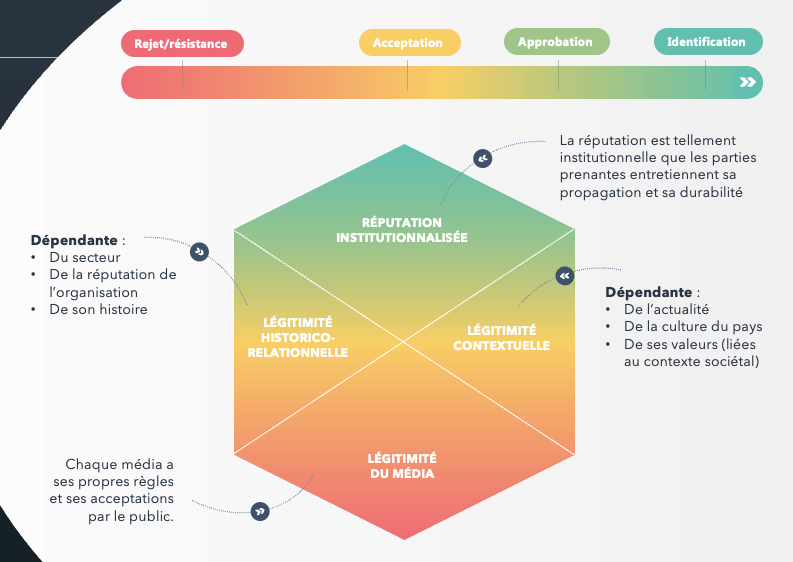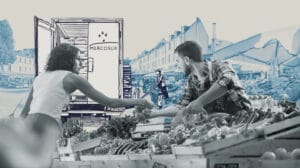Sommaire
Advertising and the environment: the Cour des Comptes warns about the social licence to communicate.
Obtained by L'informé, a recent interministerial report proposes far-reaching reforms of the advertising sector in order to limit its environmental excesses. This is yet further proof that societal management requires not only a licence to operate, but also a licence to communicate.

Commissioned by the previous government, this report, which brings together the Inspectorates of Finance, Culture and Sustainable Development, recommends banning certain types of advertising deemed incompatible with the objectives of responsible consumption, such as those for short flights, certain polluting vehicles and fast fashion.
The document also points out the limitations of the current system of self-regulation embodied in theAutorité de Régulation Professionnelle de la Publicité (ARPP), which is deemed to lack transparency, to be ineffective and insufficiently representative of civil society. To restore consumer confidence and ensure effective control, the report recommends considerably strengthening regulatory powers, in particular by placing the ARPP under the authority of Arcom and revising European directives that currently favour international players to the detriment of national regulations.
Regulating communication
Communication regulation is not new at all. (And we've been talking about a social licence to communicate since 2016).
France has an Evin Law (1991) which bans tobacco advertising outright and severely restricts alcohol advertising. Other sectors are heavily regulated, such as betting and gambling (ban on targeting minors, obligation to display prevention messages, restriction of television time slots, etc.). 2010) Advertising of prescription drugs is banned (1992 at European level, 1994 transposed in France).
Most of them are therefore largely related to health or addiction. But since 2020, the focus has shifted to another target: the environment. However, the figures from Santé publique France show that exposure to fine particles (PM2.5) is responsible for almost 40,000 premature deaths every year.
- In 2020, the Agec law will ban advertising promoting the scrapping of products that are still functional.
- In 2021, the Climate and Resilience Act provides for a gradual ban on advertising for fossil fuels (oil, coal, gas). It also regulates advertising for the most polluting vehicles, with mandatory environmental labelling.
You could say that France likes to regulate, but if you compare it with other countries, the regulations are quite similar and these discussions on the environment are also taking place in other European countries such as Sweden, Germany and Belgium.
Social licence to communicate
At the same time, certain businesses and sectors are seeing their activities and operating licences profoundly called into question (aviation, fossil fuels, agriculture, etc.). This comes on top of growing resistance to planning or economic development projects ("Not in my Backyard"). More than ever, organisations need to (re)engage with their stakeholders and explain their activities and projects. With politicians able to unleash titanic customs duties, the right to communicate is becoming a key asset for organisations to protect. The right to communicate either legally or on complex subjects where stakeholders may oppose their legitimate right to communicate on "touchy" subjects. The challenge is to overcome the controversy and noise by creating an authentic and relevant voice, aligned with the organisation's objectives (business, legislative, regulatory, reputational) so that it emerges in the eyes of the targets that count.

This involves several pillars. For each pillar, the main sectors involved are :
- Media legitimacy: you have to be legitimate in your use of a medium. A pixelated ad with no good sound and no interest will not pass the cinema test. An advert in the middle of a TV show with no advertising banner will be heavily criticised. These are the rules of the media
In our case, the media could be the first stakeholders mobilised. And then there's the easiest media legitimacy to obtain: money! In 2023, according to L'Argus, carmaker advertising expenditure will have reached €2.75 billion. (At a golden age in 2010, this accounted for 23% of advertising spend.) This represents a huge loss of earnings for the media in a context where advertising will be very complicated at the beginning of 2025. And yet the media are essential to public society.
- Historical and relational legitimacy : you get your reputation back, so you have to be consistent with it. If you say in an advert the opposite of what your image is, it will be very difficult to convince people. The weight of history is therefore important, as it is for the image of the sector.
Sectors could argue that they have the right to communicate because they are constantly moving towards sustainable consumption. French brands could also argue that they have national roots and are local economic champions.
- Contextual legitimacy: current events, a country's culture and societal values always play a part in how audiences read what we communicate. So we need to ensure that our communication is relevant to the moment.
In a climate where the automotive sector is under full attack from the USA, is it still necessary to restrain this sector? For fast fashion brands, this could rekindle a war with China after a government trip to save cognac. The sector can also mobilise the social climate to say that it allows the less well-off to dress. Finally, the travel sector is only just recovering from Covid, but will not be able to use a favourable context to argue that it is legitimate to communicate.
- Institutionalised reputation: having your reputation so widely shared by your audiences that they take it upon themselves to propagate it without the organisation doing anything about it.
Unfortunately, it is unlikely that consumers will stand up to defend product advertising. This pushes organisations to put forward their own arguments or to find related sectors or other players affected by this (the state, which would have less tax, VAT, a complicated context for the press).
And of course, if the law says that these products and organisations can no longer communicate, then there is nothing left to do. Hence the importance of carefully assessing your corporate assets and making sure that they are always sufficient to prevent a painful legislative period that often does not leave enough time to react.



